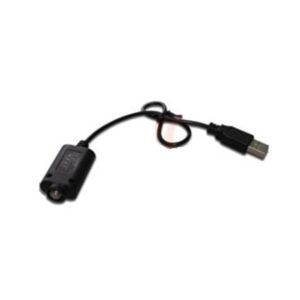Wondering if the alternator can drain your battery? The short answer is no, it won’t. In fact, the alternator plays a crucial role in your vehicle’s electrical system, working tirelessly to provide power to all the electrical components while simultaneously recharging the battery. So, rest assured, your alternator won’t siphon power from the battery and leave you stranded. But if you’re experiencing battery drain issues, the culprit might be something else entirely. In this article, we’ll delve deeper into the topic and uncover the real causes of battery drain, so you can keep your vehicle running smoothly without any surprises. Let’s get started!
Will the Alternator Drain the Battery?
The alternator is a crucial component in a vehicle’s electrical system. It works in conjunction with the battery to power the various electrical systems and devices in the car. One common question that arises is whether the alternator can drain the battery. In this article, we will explore this topic in detail, addressing the various factors that can affect the battery’s charge and discussing how the alternator functions in relation to the battery’s power supply.
Understanding the Alternator and its Role
Before diving into the question of whether the alternator can drain the battery, it’s essential to understand the function of the alternator in a vehicle. The alternator is responsible for converting mechanical energy from the engine into electrical energy. It generates electricity to power the vehicle’s electrical systems and recharge the battery.
When the engine runs, it spins the alternator’s rotor using a belt connected to the crankshaft. As the rotor spins, it creates a magnetic field that induces an alternating current (AC) in the stator windings. This AC is then converted into direct current (DC) by the diode bridge within the alternator. The DC output is used to power the vehicle’s electrical systems and charge the battery.
The Battery’s Role in the Electrical System
The battery, on the other hand, serves as a power reservoir for the vehicle. It provides the initial electrical energy to start the engine and powers the electrical systems when the engine is off. Additionally, the battery helps stabilize the voltage within the electrical system and provides a buffer during peak demand.
When the engine is running, and the alternator is functioning correctly, it takes over the power supply, freeing the battery from its electrical duties. The alternator continuously charges the battery, ensuring it maintains a sufficient charge to meet the vehicle’s electrical demands.
Factors that Can Affect Battery Drainage
While the alternator’s primary function is to charge the battery, certain factors can affect the battery’s charge and lead to potential drainage. It’s important to be aware of these factors to prevent unexpected battery failures. Let’s explore some of these factors:
- Electrical System Faults: Faults within the electrical system, such as a short circuit or parasitic draw, can cause excessive battery drain. These faults can bypass the alternator’s charging capabilities and directly drain the battery’s power.
- Aging Battery: As batteries age, their capacity to hold a charge diminishes. An old or weak battery may not hold a charge effectively, resulting in faster drainage even when the alternator is functioning correctly.
- Excessive Electrical Load: If the vehicle is equipped with numerous electrical accessories or aftermarket modifications that draw a significant amount of power, the alternator may struggle to keep up with the demand. In such cases, the battery may be drained quicker than it can be recharged.
- Alternator Malfunction: While rare, alternator malfunctions can occur. If the alternator fails to generate sufficient power or completely stops charging the battery, the battery’s charge will gradually deplete, eventually leading to a drained battery.
Preventing Battery Drainage
To prevent battery drainage and maintain a healthy electrical system, it’s important to take proper care of your vehicle’s battery and alternator. Here are some tips to help prevent battery drainage:
- Regular Maintenance: Follow the manufacturer’s recommended maintenance schedule for your vehicle, which may include alternator and battery inspections. Keeping both components in good working condition can prevent potential issues that may lead to battery drainage.
- Monitor Electrical Accessories: Be mindful of the electrical accessories and modifications you add to your vehicle. Excessive power consumption can overload the alternator’s charging capacity, leading to battery drain. Consider upgrading your alternator if you frequently run power-hungry accessories.
- Address Electrical System Faults: If you notice any electrical issues, such as flickering lights or unexplained battery drain, have your vehicle inspected by a qualified technician. Timely detection and repair of electrical faults can prevent further damage and avoid draining the battery.
- Replace Old Batteries: If your battery is old or showing signs of deterioration, consider replacing it. A fresh battery with optimal capacity will hold a charge efficiently and reduce the risk of unexpected drainage.
- Charge Your Battery Manually: If your vehicle remains unused for an extended period, consider using a battery charger to maintain the battery’s charge. This is particularly useful during long vacations or when storing a vehicle in a garage for an extended period.
In conclusion, while the alternator’s primary role is to charge the battery and power the vehicle’s electrical systems, there are certain factors that can lead to battery drainage. Electrical system faults, aging batteries, excessive electrical load, and alternator malfunctions can all contribute to a drained battery. However, with regular maintenance, proper care, and monitoring of the electrical system, it is possible to prevent battery drainage and ensure a reliable power supply for your vehicle. Remember to address any electrical issues promptly and follow the manufacturer’s recommendations to maintain a healthy electrical system.
Frequently Asked Questions
Will the alternator drain the battery?
No, the alternator does not drain the battery. In fact, the alternator is responsible for recharging the battery while the engine is running. Its primary function is to convert mechanical energy into electrical energy, which powers the various electrical components of the vehicle and replenishes the battery’s charge. Without the alternator, the battery would eventually lose its charge and become unable to start the engine or operate the vehicle’s electrical systems.
Can a faulty alternator drain the battery?
Yes, a faulty alternator can drain the battery. If the alternator is not functioning properly, it may not be able to generate enough electrical power to keep the battery charged. This can lead to a gradual depletion of the battery’s charge, eventually causing it to go flat and preventing the vehicle from starting. It is important to have the alternator inspected and repaired if necessary to avoid this issue.
What are the signs of a failing alternator?
Several signs can indicate a failing alternator. These include dimming headlights or interior lights, a battery warning light on the dashboard, difficulty starting the engine, electrical issues such as malfunctioning power windows or radio, and a burning smell coming from the engine compartment. If you experience any of these symptoms, it is advisable to have your alternator checked by a professional mechanic.
Can a bad battery cause the alternator to drain?
No, a bad battery cannot cause the alternator to drain. The alternator’s role is to charge the battery, not the other way around. However, a failing battery may affect the alternator’s ability to maintain a charge. A weak or damaged battery may not be able to hold a charge efficiently, resulting in the alternator working harder to compensate. This increased workload on the alternator can lead to premature failure if the battery is not replaced.
How can I prevent my alternator from draining the battery?
To prevent your alternator from draining the battery, it is essential to ensure both components are in good working condition. Regular maintenance, such as checking the battery’s voltage and inspecting the alternator’s electrical connections, can help identify any potential issues early on. Additionally, avoiding excessive use of electrical components when the engine is not running and scheduling regular inspections by a qualified mechanic can contribute to the longevity and optimal performance of both the alternator and the battery.
Final Thoughts
In conclusion, it is important to address the question of whether the alternator will drain the battery. The alternator plays a crucial role in recharging the battery while the engine is running, ensuring a steady power supply. Thus, it does not drain the battery, but rather maintains its charge. If you notice a battery drain, it is more likely due to other factors such as faulty wiring or a failing battery. Regular maintenance and timely replacements are key to keeping both the alternator and battery in good working condition. So, will the alternator drain the battery? The answer is no, as long as it is functioning properly.


